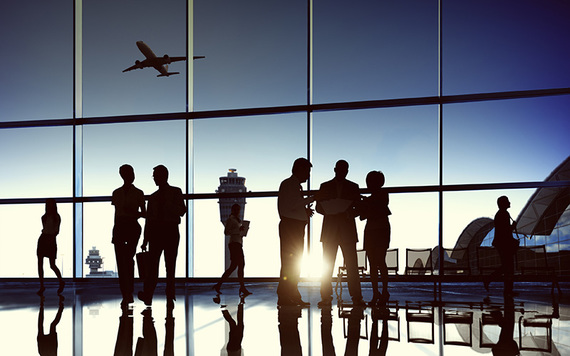Be prepared for your first vacation to Ireland with this essential guide.
If you're planning your first trip to Ireland and want to know how to get here, how to get around when you arrive, and what currency to bring, here's all the information you will need.
Basics about Ireland
It's important to get an understanding of the country before you arrive in Ireland.
- The island of Ireland has 32 counties; there are 26 in the Republic of Ireland and six in Northern Ireland.
- The Republic of Ireland is a parliamentary democracy with a president as its head of state.
- Northern Ireland has its own regional government but is part of the United Kingdom.
- There are about 6 million people living on the island – 4.3 million people live in the Republic of Ireland and 1.7 million in Northern Ireland.
Traveling to Ireland
Ireland has nine airports. You can find the closest route to you here.

Ireland has nine airports with routes all over the world
Climate in Ireland
When they say you can't predict the Irish weather, they're not messing.
Ireland has a mild, temperate climate with summer temperatures generally ranging from 60°F/15°C to 70°F/20°C. Temperatures in spring and autumn are generally 50°F/10°C, and in winter between 40°F/5°C and 46°F/8°C. Snow is rare but rain showers can occur at any time of the year.
The best thing to do is to pack for all types of weather and without a doubt bring a rain jacket and umbrella just in case. For up-to-the-minute weather reports visit met.ie.
Getting around Ireland
The island is quite small so in theory, it shouldn't be that hard to get around. But unfortunately, the Irish transport system is not the most reliable or advanced.
Some parts of the country especially in rural Ireland will either take a long time or be impossible to reach if relying on public transport. For example, there's no train line to Donegal so a bus or car is the only way to reach that part of the country.
Our advice is to save yourself the stress and hassle and rent an automatic car at your destination and navigate from there. Or book yourself in with an Irish coach tour, there are some amazing tour companies that will give you an authentic experience.
Currency and Money in Ireland
In the Republic of Ireland, the official currency is the Euro. In Northern Ireland, it’s the Sterling. Credit cards that have the Visa and Mastercard symbol are widely accepted. Visitors with other cards such as American Express should check before they use them. ATM (cash) machines are located at most banks and in towns and city centers and accept most credit and debit cards.
Accommodation Information for Ireland
Ireland offers a wide range of accommodations, from 5-star hotels and self-catering to home stays and camping sites.
Emergency Numbers in Ireland
We hope you won’t need any emergency numbers during your visit, but just in case, for emergency Police, Fire or Ambulance dial: 999.
* Originally published in 2021, updated in Nov 2023.




Comments